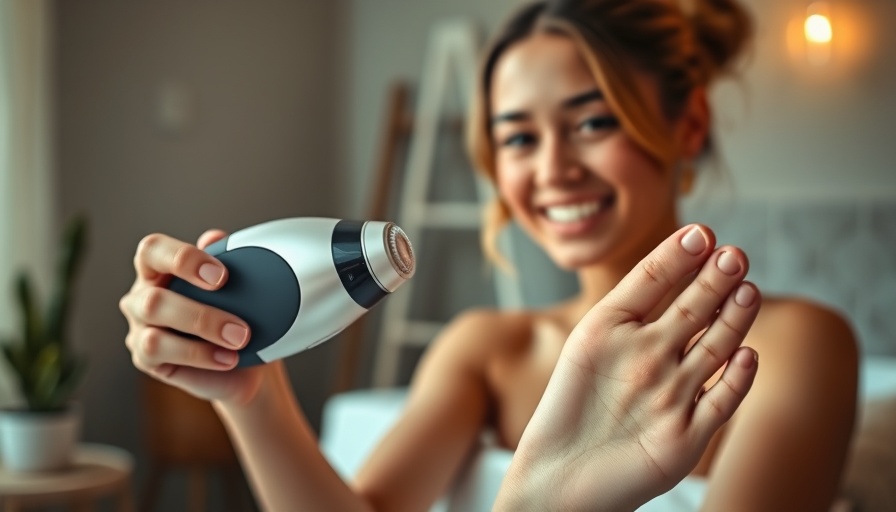
Understanding Calluses: A Common Concern
Calluses form as a natural response to repeated pressure or friction on the skin, often a result of tight shoes, standing for long periods, or frequently being barefoot. These protective layers can be beneficial to some extent, but when they become too thick, they can cause discomfort and pain. If you've ever wondered if callus shaving devices are the answer to achieving soft, baby-like feet, it's time to delve deeper.
In 'Doctor reacts: callus shaving device,' the discussion dives into the effectiveness and safety of these devices, prompting us to analyze their implications for foot health.
Are Callus Shaving Devices Safe?
While callus shaving devices promise quick results, experts advise caution. As discussed in a recent video analysis, simply grinding away at calluses can lead to injuries if done improperly. Overzealous shaving can damage healthy skin, analogous to sanding wood. Not only does this pose a risk for everyone, but individuals with underlying medical conditions, such as diabetes, must be particularly vigilant. Their skin may not heal as effectively, elevating the risk of complications.
Safer Alternatives for Foot Care
If you're seeking effective callus removal methods that prioritize safety, consider soaking your feet in warm water for 10 to 15 minutes. Follow this up with a pummus stone, which helps gently reduce calluses without risking injury. After that, apply a thick moisturizer enriched with urea or salicylic acid, which aids in softening those stubborn patches. Such steps not only care for your feet gently but also enhance their overall health.
The Importance of Foot Health
Maintaining foot health is crucial, not only for aesthetics but also for overall well-being. Common foot problems can lead to issues like foot pain, plantar fasciitis, and heel pain if not managed properly. Prioritizing foot care can prevent these potential issues and contribute to a healthier lifestyle.
Consulting a Professional
For persistent foot issues or to explore options such as custom orthotics, consider seeking advice from a professional podiatrist. Understanding when DIY treatments are appropriate and when to consult a specialist can make all the difference in your foot care routine. Whether you're dealing with bunions, plantar fasciitis, or other concerns, a podiatrist can provide tailored advice and treatments.
Conclusion
In summary, while achieving soft feet is often a goal, the approach should be both thoughtful and safe. It's easy to be tempted by quick-fix products like callus shavers; however, adopting gentle foot care practices can lead to healthier results. By understanding your foot's needs and consulting with professionals when necessary, you can embrace a more holistic approach to foot health. Remember, taking care of your feet not only enhances comfort but also elevates your quality of life.
 Add Row
Add Row  Add
Add 




Write A Comment